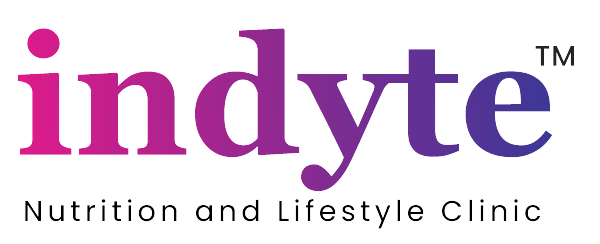- April 2, 2024
- PRIYANKA MAHESHWARI
- Comment: 0
- Weight Loss
Let’s face it, ladies, finding the “best” diet plan for weight loss can feel like searching for a unicorn. We all know the struggle – endless magazine headlines promising quick fixes, conflicting advice online, and the frustration of plans that just don’t fit our busy lives. But what if the secret to successful weight loss wasn’t a one-size-fits-all plan, but rather an approach personalized to your unique needs?
The truth is, age, lifestyle, and even life stage can significantly impact how our bodies respond to food and exercise. A juggling-a-million-things young professional in her 20s might have different dietary needs than a health-conscious woman navigating menopause in her 50s. This blog post explores five different approaches to weight loss for females, tailored to various age groups and lifestyles.
Remember, these are just starting points! Consulting a doctor or registered dietitian can help you create a personalized plan that considers your individual health goals, preferences, and any underlying medical conditions.
The Importance of Personalization:
Did you know that according to the CDC, over two-thirds of adults in the United States are overweight or obese? This statistic highlights the prevalence of weight management struggles, but it also emphasizes the need for personalized solutions. Restrictive fad diets that promise rapid weight loss might work for some in the short term, but they’re often unsustainable and can even be harmful to your health.
The key to lasting weight loss success lies in finding a healthy eating approach that fits seamlessly into your life. This means considering your age, activity level, and any dietary restrictions you might have. Let’s dive into some specific approaches that cater to different needs!
1.The Busy Woman's Balanced Plate (20s & 30s):
Juggling work deadlines, errands, and social commitments – we’ve all been there! For women in their 20s and 30s with busy lifestyles, convenience is key. Here’s how to create a balanced plate that keeps you fueled and on track:
- Meal Prepping is Your BFF: Dedicate some time on the weekend to prep healthy meals and snacks for the week. This way, you’ll always have grab-and-go options that are way healthier than takeout or vending machine fare!
- Portion Control is Your Partner: Mindful eating practices like using smaller plates or portion control containers can help you stay aware of how much you’re consuming.
- Balance is Key: Focus on including whole, unprocessed foods from all food groups on your plate. This ensures you’re getting a variety of nutrients your body needs for energy and overall health. Think lean protein sources like grilled chicken or salmon, colorful vegetables, and complex carbohydrates like brown rice or quinoa.
Sample Meal Plan (Consideration):
- Breakfast: Greek yogurt with berries and granola, or a veggie omelet with whole-wheat toast.
- Lunch: Leftovers from dinner, a pre-made salad with grilled chicken or tofu, or a whole-wheat wrap with hummus and vegetables.
- Dinner: Salmon with roasted vegetables and brown rice, lentil soup with a whole-wheat roll, or a stir-fry with lean protein and mixed vegetables.
- Snacks: Fruits with nut butter, baby carrots with hummus, or a handful of mixed nuts.
2.The Active Woman's Performance Fuel (20s-40s):
Are you a fitness enthusiast who hits the gym regularly? If you lead an active lifestyle, your nutritional needs will differ from someone with a more sedentary routine. Here’s how to fuel your body for optimal performance and recovery:
- Carbs for Energy: Your body relies on carbohydrates for energy, especially during workouts. Include complex carbs like whole grains, sweet potatoes, and fruits in your diet.
- Protein for Building and Repair: Strength training and intense workouts put stress on your muscles. Protein helps build and repair muscle tissue, so ensure you’re getting enough lean protein sources throughout the day. Aim for protein at every meal and consider including a post-workout protein shake.
Sample Meal Plan (Consideration):
- Pre-Workout Snack: Banana with almond butter, or Greek yogurt with berries.
- Post-Workout Meal: Salmon with brown rice and roasted vegetables, or lentil soup with a whole-wheat roll and side salad
3.The Family-Focused Nourishment Plan (30s-50s):
Many women in their 30s and 50s are juggling family life, careers, and their own well-being. Here’s how to create a healthy eating plan that works for the whole family:
- Meal Planning Makes Magic: Planning meals for the week helps ensure everyone has access to healthy options and reduces the temptation to resort to unhealthy last-minute choices. Involve your family in the planning process – let them pick healthy recipes or help with grocery shopping!
- Healthy Habits for Everyone: Incorporate healthy habits into your daily routine. Make water the go-to beverage, encourage family walks after dinner, and involve everyone in preparing healthy snacks.
- Focus on Fruits & Veggies: Aim for “rainbow eating” by including a variety of colorful fruits and vegetables on everyone’s plate. This ensures a good intake of vitamins, minerals, and fiber, essential for overall health.
Sample Meal Plan (Consideration):
- Breakfast: Scrambled eggs with whole-wheat toast and fruit salad, or oatmeal with berries and nuts.
- Lunch: Leftovers from dinner, whole-wheat pasta with grilled chicken and vegetables, or a tuna salad sandwich on whole-wheat bread.
- Dinner: Chicken stir-fry with brown rice and mixed vegetables, lentil soup with a whole-wheat roll and side salad, or baked salmon with roasted sweet potatoes and broccoli.
- Snacks: Fruits with nut butter, yogurt parfaits with granola and berries, or vegetable sticks with hummus.
4.The Menopausal Wellness Plate (40s & Up):
Menopause brings about hormonal changes that can impact your metabolism and weight management. Here’s how to tailor your diet to promote overall well-being during this life stage:
- Manage Weight Gain: Menopause can lead to weight gain around the midsection. Focus on portion control and healthy eating habits to manage your weight.
- Nutrient-Rich Choices: Include plenty of fruits, vegetables, and whole grains in your diet. These foods are rich in vitamins, minerals, and fiber, which are crucial for overall health during menopause.
- Calcium & Vitamin D: Bone health becomes a concern during menopause. Focus on including calcium-rich foods like yogurt, leafy greens, and fortified plant-based milks in your diet. Vitamin D also plays a role in bone health, so consider incorporating fatty fish or fortified options.
- Plant-Based Protein: Soy products like tofu and tempeh are good sources of plant-based protein and may offer additional benefits during menopause due to their phytoestrogen content.
Sample Meal Plan (Consideration):
- Breakfast: Greek yogurt with berries and granola, or tofu scramble with vegetables and whole-wheat toast.
- Lunch: Chickpea salad sandwich on whole-wheat bread with a side salad, or lentil soup with a whole-wheat roll and vegetables.
- Dinner: Salmon with roasted Brussels sprouts and quinoa, vegetarian chili with a whole-wheat cornbread roll, or turkey stir-fry with brown rice and mixed vegetables.
- Snacks: Fruits with nut butter, low-fat cottage cheese with fruit, or a handful of almonds.
5.The Mindful Eater's Sustainable Approach (All Ages):
Developing a healthy relationship with food is key to sustainable weight loss success. Here’s how a mindful eating approach can benefit you:
- Intuitive Eating: Tune into your body’s hunger and fullness cues. Eat when you’re hungry and stop when you’re comfortably full. This helps you avoid overeating and emotional eating.
- Stress Management: Chronic stress can lead to unhealthy eating habits. Practice stress-management techniques like yoga, meditation, or deep breathing to manage stress levels and avoid stress-induced cravings.
Conclusion:
The quest for weight loss isn’t about finding a one-size-fits-all solution. By considering your age, lifestyle, and preferences, you can create a personalized approach to healthy eating that promotes weight management and overall well-being. Don’t hesitate to seek guidance from a doctor or registered dietician for a plan tailored to your unique needs. They can help you set realistic goals, navigate any dietary restrictions, and create a sustainable plan for long-term success.
Remember, true weight loss success is a journey, not a destination. Focus on developing healthy habits, building a positive relationship with food, and celebrating your progress along the way!
Additional Considerations:
- Weight Loss Consultant: While this blog post focused on creating your personalized plan, a weight loss consultant can offer additional support and guidance. They can help you develop meal plans, track your progress, and provide motivation throughout your weight loss journey.
- Focus on Overall Health: Ultimately, the goal is to achieve and maintain a healthy weight for overall well-being, not just the number on the scale. By incorporating healthy eating habits, regular physical activity, and stress management techniques, you’ll be well on your way to a healthier and happier you.
Embrace the Power of Personalized Nutrition:
By taking a personalized approach to weight loss, you’ll be setting yourself up for long-term success. Remember, there’s no single “best” diet plan for every woman. The key is to find a healthy eating approach that fits seamlessly into your lifestyle and preferences. With a little planning and the right support system, you can achieve your weight loss goals and feel your absolute best!

